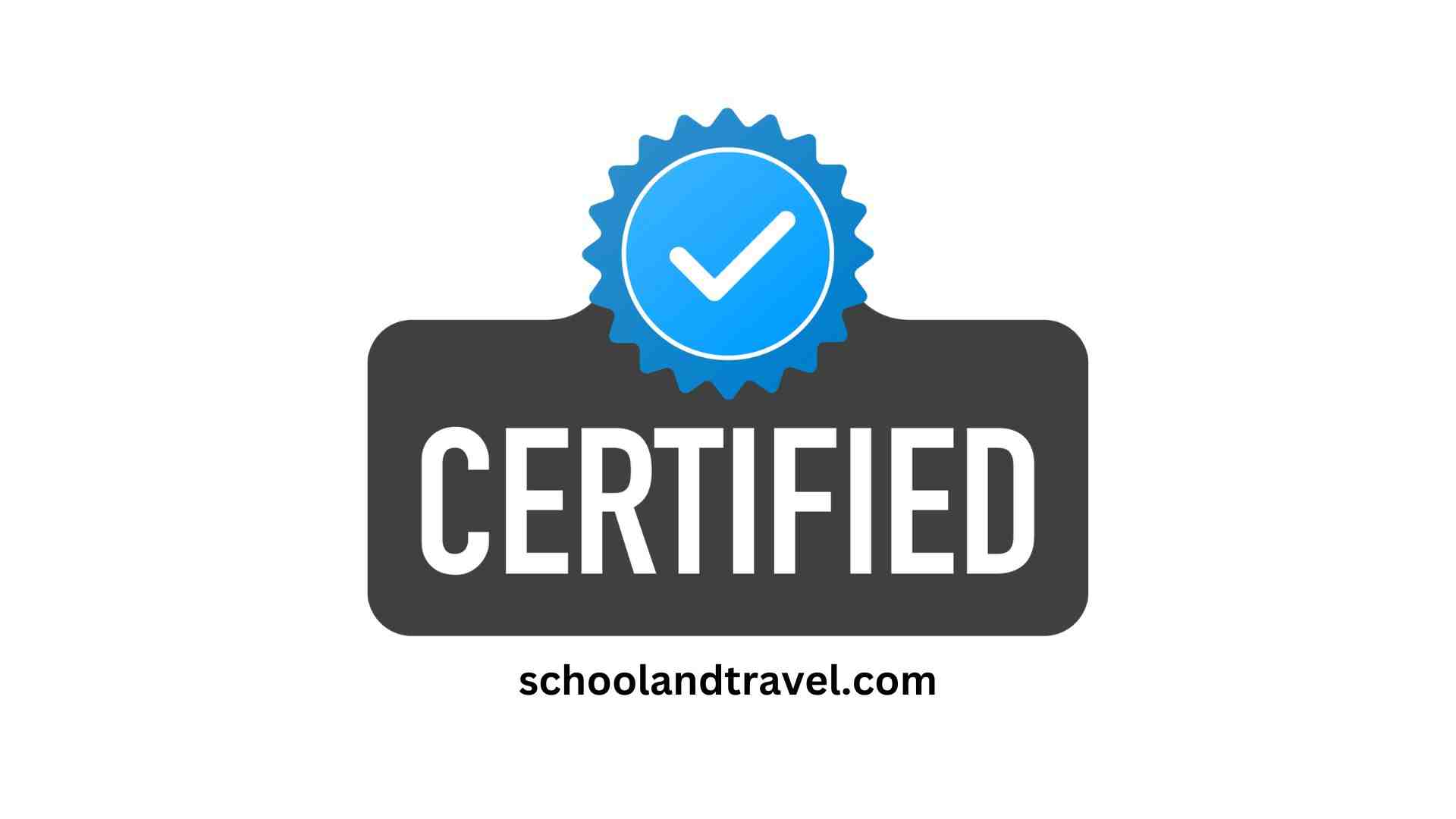In today’s society, the traditional path to success often revolves around pursuing higher education at a college or university.
While this route has proven beneficial for many, it’s essential to recognize that it’s not the only path to a fulfilling and prosperous career.
In recent years, many individuals have been exploring alternative options that offer unique advantages and opportunities.
In this article, we will delve into some of these alternative paths and shed light on their potential for those willing to take the less traveled road.
The Traditional College Path
For decades, the conventional route to success for high school graduates has been to enroll in a four-year college or university.
This path offers a structured curriculum, a degree upon completion, and the opportunity to acquire knowledge in various academic fields.
It has been viewed as a stepping stone to secure employment and build a successful career.
However, only some are suited for or interested in pursuing a traditional college education.
Some individuals may have unique passions or talents requiring a different learning and career development approach.
Fortunately, there are now numerous alternatives available that can provide a viable and fulfilling path to success.
The Rise of Alternatives
In recent years, there has been a notable rise in the popularity and acceptance of alternative paths to traditional college education.
This shift can be attributed to various factors, including evolving job markets, changing perceptions of success, and the accessibility of information and technology.
The rise of alternatives signifies a departure from the notion that a college degree is the only means to achieve a prosperous and fulfilling career.
The rise of these alternatives can be attributed to several advantages they offer.
Financial considerations play a significant role, as alternatives to college often come at a fraction of the cost, allowing individuals to avoid substantial student loan debt.
Real-world experience gained through apprenticeships and vocational training programs provides individuals with practical skills that employers highly value.
Moreover, alternative paths often offer more individualized learning experiences, allowing individuals to focus on their specific areas of interest and tailor their education accordingly.
However, it’s essential to acknowledge that choosing an alternative path is challenging.
Societal perceptions and stigma surrounding non-traditional education paths can present hurdles for individuals pursuing alternatives to college.
Self-motivation and discipline become essential when taking an alternative to college education, as individuals must actively manage their time and stay committed to their chosen path.
Recognition of alternative credentials and building a support network are also factors to consider when venturing down a non-traditional education route.
1. Gap Year
Taking a gap year after high school has become increasingly popular among young adults.
It offers an opportunity to take a break from academics and engage in meaningful experiences such as volunteering, traveling, or interning.
This period of self-discovery allows individuals to gain perspective, develop new skills, and explore potential career paths before committing to a specific educational or professional trajectory.
2. Apprenticeships
Apprenticeships have long been valuable, particularly in skilled trades and crafts.
By combining practical, hands-on experience with classroom instruction, apprenticeships allow individuals to develop specialized skills under the guidance of industry professionals.
This approach offers a direct pathway to employment and can lead to rewarding careers such as carpentry, plumbing, or electrician work.
3. Vocational Training
Vocational training programs focus on equipping individuals with practical skills directly applicable to specific industries.
These programs offer targeted instruction in automotive technology, culinary arts, healthcare, or cosmetology.
By gaining industry-specific knowledge and hands-on experience, graduates of vocational programs often find themselves well-prepared for immediate entry into the workforce.
4. Online Learning
The digital age has brought about a revolution in education through online learning platforms.
With the rise of Massive Open Online Courses (MOOCs) and specialized online programs, individuals can now access high-quality education from the comfort of their homes.
Online learning offers flexibility, allowing students to learn at their own pace while balancing other commitments.
It also provides a cost-effective alternative to traditional college education, making education more accessible to a broader range.
Benefits of Choosing Alternatives
Opting for alternatives to a traditional college education can offer a range of significant benefits for individuals seeking diverse pathways to success.
These alternatives, such as apprenticeships, vocational training programs, gap years, and online learning, provide unique advantages that cater to different learning styles, career goals, and financial considerations.
Exploring alternatives opens up opportunities for personal growth, skill development, and meaningful employment without needing a traditional four-year degree.
Real-world experience is another valuable benefit of alternative paths.
While a college education provides a solid theoretical foundation, alternatives often emphasize hands-on experience and practical skills.
Apprenticeships, for example, offer individuals the opportunity to work alongside experienced professionals, gaining valuable industry-specific knowledge and developing practical skills that are highly sought after by employers.
This real-world experience allows individuals to bridge the gap between education and employment, making them more competitive in the job market.
Individualized learning is a key advantage of many alternative paths.
Traditional college education follows a predetermined curriculum, leaving little room for customization based on individual interests and goals.
In contrast, alternatives offer more flexibility and allow individuals to focus on their specific areas of interest.
Vocational training programs, for instance, provide targeted instruction in specific industries, enabling individuals to acquire practical skills directly applicable to their chosen field.
This tailored approach to learning ensures that individuals can pursue their passions and develop expertise in areas that align with their career goals.
1. Financial Considerations
One of the primary concerns for many individuals considering alternatives to college is the cost of education.
Traditional college can be expensive, with tuition fees, accommodation, and other expenses adding up.
On the other hand, alternatives such as vocational training or apprenticeships often come at a fraction of the cost, allowing individuals to avoid the burden of student loans and start their careers with minimal or no debt.
2. Real-World Experience
While college provides a solid theoretical foundation, alternatives to college often emphasize hands-on experience and practical skills.
This real-world experience can be invaluable, allowing individuals to apply what they learn tangibly.
By gaining early experience, individuals can build a strong career foundation and stand out in competitive job markets.
3. Individualized Learning
Traditional college education follows a predetermined curriculum, leaving little room for customization.
In contrast, many alternative paths offer more flexibility and allow individuals to focus on their specific areas of interest.
This individualized approach to learning ensures that individuals can tailor their education to align with their passions and career goals, leading to a more fulfilling and personally meaningful journey.
4. Networking Opportunities
Building a network of professional connections is crucial in today’s job market.
Alternative paths often provide ample networking opportunities through apprenticeships, vocational training programs, or online communities.
These connections can lead to mentorship, job offers, and collaboration opportunities, offering individuals a head start in their chosen field.
Choosing the Road Less Traveled
In today’s rapidly evolving world, the traditional path of attending college after high school is no longer the only viable option for young individuals seeking to build successful and fulfilling careers.
Exploring alternative routes that deviate from the conventional college experience has gained significant traction in recent years.
1. Entrepreneurship
Some of the most successful individuals in various industries have bypassed college and embarked on entrepreneurial journeys.
These individuals have built successful businesses and careers by leveraging their skills, creativity, and determination.
Entrepreneurship allows for innovative thinking, flexibility, and the opportunity to create one’s path rather than conforming to established norms.
2. Creative Industries
Talent and skill are often more valuable than formal education in art, design, writing, and music.
Many renowned artists and creatives have honed their craft through self-study, apprenticeships, or specialized workshops.
The creative industries value originality, passion, and a unique perspective, enabling individuals without a college degree to thrive and succeed.
3. Skilled Trades
Skilled trades, such as plumbing, electrical work, and carpentry, are in high demand worldwide.
These fields offer stable employment opportunities and the potential for significant income without the need for a college degree.
By acquiring the necessary skills through vocational training or apprenticeships, individuals can enter these trades and contribute to essential industries that keep our society running smoothly.
4. Tech Industry
The tech industry is notorious for valuing practical skills and real-world experience over formal degrees.
Many tech giants, including Apple, Microsoft, and Facebook, have welcomed talented individuals who have proven their abilities through projects, certifications, or self-taught expertise.
The fast-paced nature of the tech industry rewards those who can adapt quickly and showcase their proficiency in relevant technologies.
Making an Informed Decision
When considering alternatives to traditional college education, making an informed decision that aligns with personal goals, interests, and aspirations is essential.
Making such a decision requires thorough research, self-reflection, seeking guidance, and weighing the pros and cons of each available option.
By following a thoughtful decision-making process, individuals can choose the alternative path that best suits their needs and sets them on a path toward success.
Thorough research is another vital component of the decision-making process.
Gathering information about the available alternatives and exploring the specific requirements, curriculum, and potential outcomes associated with each path is essential.
1. Self-Reflection
Before embarking on an alternative path, it’s important to self-reflect and identify personal interests, passions, and long-term goals.
Understanding oneself and what one wants to achieve is key to making an informed decision and selecting a path that aligns with individual aspirations.
2. Researching Alternative Paths
Thorough research is essential when exploring alternative paths.
Information about different options, such as gap year programs, apprenticeships, vocational training institutions, and online learning platforms, will help individuals understand each path’s requirements, curriculum, and potential outcomes.
Reviewing success stories and testimonials from individuals who have pursued alternative routes can provide valuable insights.
3. Seeking Guidance and Mentorship
Seeking guidance from professionals, mentors, or career counselors can provide valuable advice and insights during the decision-making process.
These individuals can offer personalized guidance based on their expertise and experience.
Engaging in conversations with people who have taken alternative paths can help address concerns and gain a realistic understanding of the challenges and benefits involved.
4. Weighing the Pros and Cons
After gathering information, reflecting on personal goals, and seeking guidance, weighing the pros and cons of each alternative path against the individual’s aspirations is important.
Considering financial implications, learning style preferences, long-term career prospects, and personal growth opportunities will aid in making a well-informed decision.
Conclusion
Exploring alternatives to a conventional college education has become a more practical and alluring choice for those looking for alternate routes to success in today’s fast-changing educational scene.
People might find alternatives that fit their interests and ambitions by taking the less-traveled path.
Choosing an alternative path offers numerous benefits. It allows individuals to save on costs, avoid substantial student loan debt, and achieve a faster return on investment.
Alternatives such as apprenticeships, vocational training programs, gap years, and online learning emphasize practical skills, real-world experience, and individualized learning, equipping individuals with the necessary tools to excel in their chosen fields.
Making an informed decision about alternative paths requires self-reflection, thorough research, seeking guidance, and weighing the pros and cons of each option.
Self-reflection helps individuals identify their passions, strengths, and long-term goals, ensuring they select an alternative path that aligns with their aspirations.
Awesome one; I hope this article answers your question.
Editor’s Recommendations:
- Is Transportation Services A Good Career Path? (FAQs)
- Is business services a good career path? (FAQs)
- Is packaged foods a good career path? (FAQs)
- 11+ Best Paying Jobs In Metal Fabrications (FAQs)
- Why is Africa Called The Dark Continent? (FAQs, Reasons)
- Is Natural Gas Distribution a Good Career Path? (FAQs, Jobs)
- Is Metal Fabrications a Good Career Path? (FAQs)
If you find this article good, please share it with a friend.




